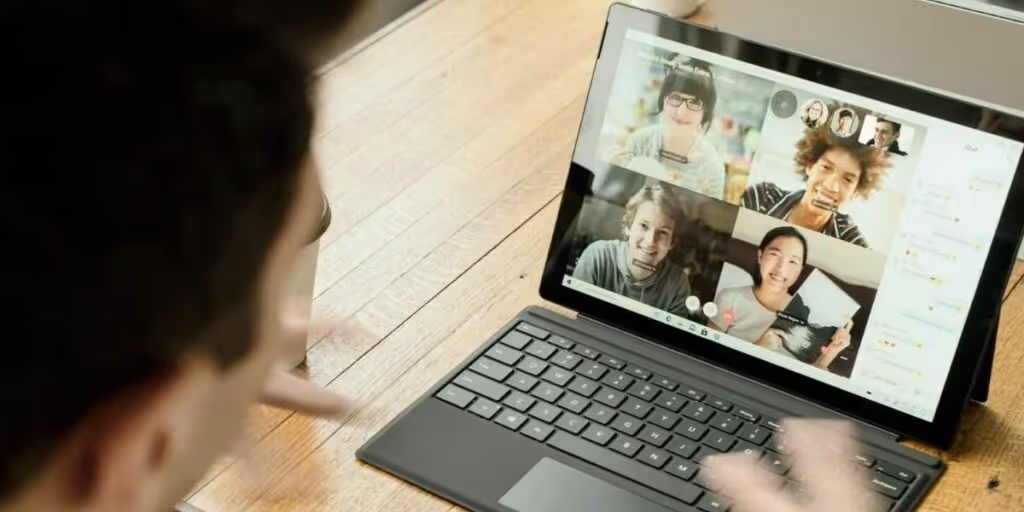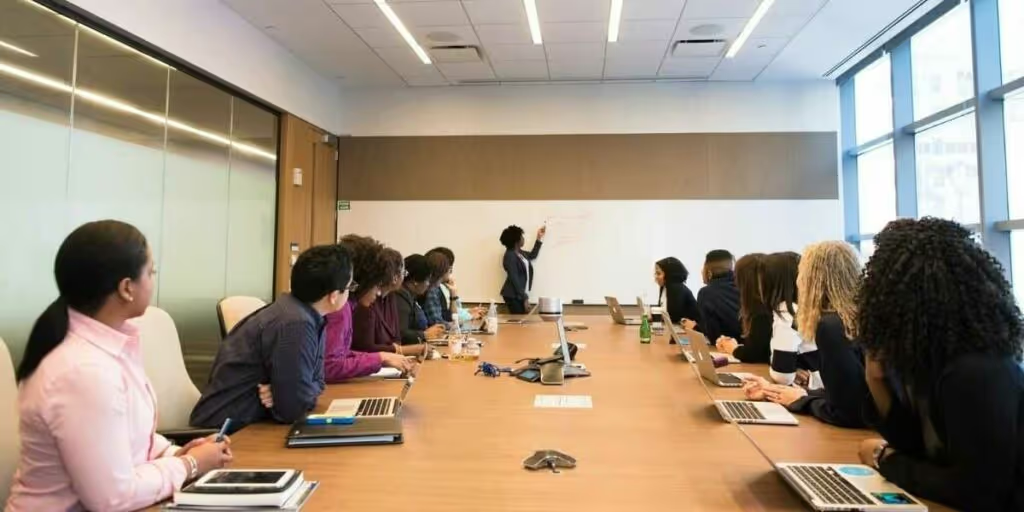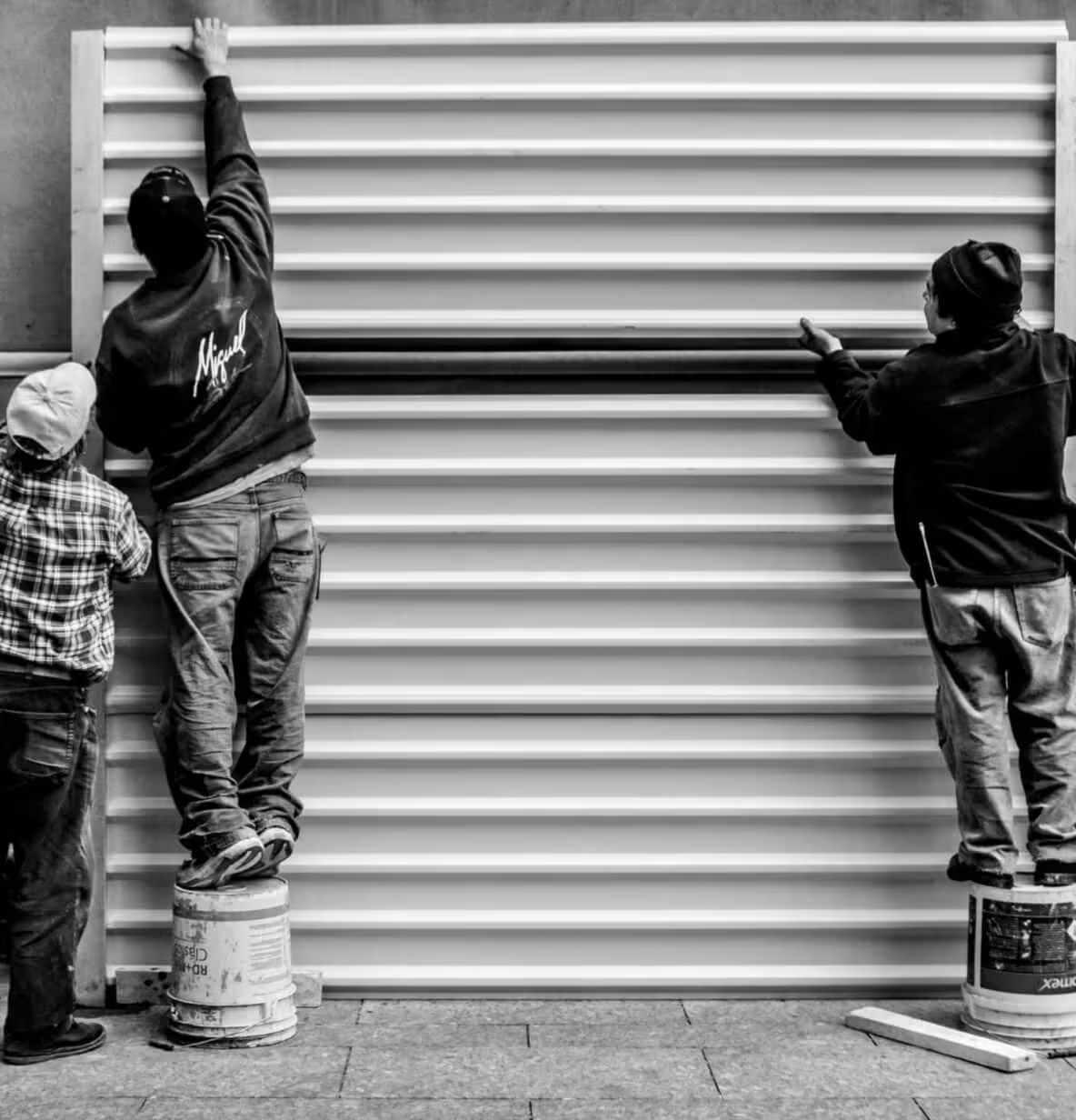While staying in a hotel in Belgium, I ate half a cookie with my breakfast and left for a couple of hours to explore the city on foot. It was a large cookie, so I left it in my room thinking that I’d finish it when I get back.
But when I returned, it was gone. I called the front desk and they said housekeeping threw it away because they thought serving me a fresh one would be better. I contacted the kitchen, and found that they were already informed to deliver the cookie as soon as I called.
Do you see the quality of service and convenience I experienced because the front desk, housekeeping, and kitchen staff worked together and kept each other in the loop? And do you think I’d want to stay in that hotel again? Absolutely!
That’s the potential of good teamwork and collaboration. Working as a team, your employees can merge their unique talents and give your company a real competitive advantage. On top of that, cultivating teamwork skills helps you create a happy working environment for yourself and your workers.
In this article, we’ll take a closer look at what it means to work as a team, the importance of teamwork skills, and the top skills your team should have for effective collaboration.
What are teamwork skills?
Teamwork skills are the traits and abilities that allow you and your employees to work well with one another on a project or task.
If you’ve played a sport in school or joined a club at work, you may already be familiar with what it means to work as a team.
Most educational institutions try to incorporate these skills in students early on, since they lay the groundwork for all your future endeavors, whether professional or personal.
So “teamwork skills” is more like a blanket term encompassing qualities such as proper communication, active listening, and conflict management.
Why work as a team?
Teamwork isn’t just a fancy term to put on your website and posters in the office. It’s an integral part of your culture and business operations. Plus, it has a direct impact on your revenue.
As per a survey by EIU, when workers are not working as a team, the impact on overall revenue is serious. Over 33% of sales lost as a result were valued between $100,000 and $999,999.

No matter your industry or job role, the ability to work alongside others is crucial for you and your workers to contribute positively to the company.
Communication and collaboration among a team are the attributes that unite a group of diverse individuals towards common business objectives. And they make it more likely for organizations to achieve them.
Teamwork skills you need to work as a team
Your ability to work as a team depends on how well you instill and demonstrate the teamwork skills mentioned below. But if a skill doesn’t come naturally to you, worry not. All of these can be improved with the right teamwork development strategies.
Communication

Clear, steady, and efficient communication is critical to consistent teamwork. When team members inform, educate, and inspire one another, amazing things happen; barriers are broken down, knowledge is shared, and productivity skyrockets. Team management tools can be used to maximize productivity while building a strong and trustworthy remote team.
Actions that demonstrate this skill include: checking in with team members, asking clarifying questions, articulating your ideas, and sharing information in a timely manner.
Project management

Contrary to what you may think, project management skills are not just crucial for managers and coordinators, but they also benefit other team members.
Knowing the basics of project management, team members can understand and align better with the plans and processes set forth by the leader. Plus, project management best practices help employees feel more assured about the timeline and completion of the projects.
Actions that demonstrate this skill include: setting realistic goals, assigning roles and responsibilities, managing project budget, defining tasks, and prioritizing them based on their urgency and importance.
Delegation
Every team member has different strengths and capacity to accommodate the tasks associated with a project. They need to know exactly what their job is, and have a reasonable amount of work on their plate.
So to function effectively, teams need leaders who know how to delegate. You should have the ability to clearly assign tasks to the people who can handle them. Plus, you’ll need to set deadlines that are challenging yet achievable.
Actions that demonstrate this skill include: creating guidelines, setting expectations, showing what a successful outcome looks like with example, and scheduling.
Conflict resolution
Conflict is part and parcel of any collaborative project. Sooner or later, it’s bound to happen in your team, whether in the form of a small disagreement or a large debate.
But how you handle such a situation speaks volumes about your aptitude to work as a team. Strong team players keep their cool and look at any conflict as an opportunity for clarification, learning, and growth.
Actions that demonstrate this skill include: being open to ideas different than yours, being fair and respectful, listening with the intent to understand, and backing up your ideas with examples and unbiased data.
Active listening

Listening seems like a simple and passive activity, but it isn’t always as easy for some people as speaking and expressing their own ideas.
Real, active listening is much more than just sitting back and letting others talk. It takes effort and focus. It involves giving your 100% attention to the speaker and listening not just for the words, but also the intent and emotions behind them.
Most people don’t really listen. Even when they do, they listen to prepare an instant response in their mind. But good listeners listen to understand first. And then they ask clarifying questions to validate what they understood. This whole process takes the trust and satisfaction of the whole team to another level.
Actions that demonstrate this skill include: Giving undivided attention to the person speaking, considering non-verbal cues, making eye contact, and not making unfounded assumptions.
Rapport building

Rapport is the informal connection you have with your team members that makes it easy and comfortable to carry out the formal responsibilities.
Being able to bond and engage in enthusiastic conversations is important for you and your team to realize their full potential. It leads to better communication, planning, and an overall more pleasant working environment.
Actions that demonstrate this skill include: showing an interest in your team beyond what they do at work, finding common interests, empathizing with their needs and frustrations, and offering help and support.
Public speaking

How can we talk about working as a team and not talk about public speaking and presentation skills? You’ll frequently need to address your whole team to explain a process or persuade them to adopt a new approach.
It’s often scary for people to present because they expect everything to be smooth and perfect. And they want to look like a fancy orator. But a good presentation is more like a normal, friendly conversation focused on clearly communicating your points. As long as you do that much, your job is done.
Actions that demonstrate this skill include: working with MS Powerpoint or other presentation software, designing visual slides, understanding your audience, and telling stories that hook.
Steps to improve how you work as a team
Teamwork skills are mostly soft skills. So improving them is a little more complicated than hard skills, since hard skills usually have a straightforward rulebook. Still, there are steps you can take to boost your teamwork skills significantly.
Learn from strong team players
Whether inside or outside your immediate team, you will always find people who work really well as part of teams. And you can learn a lot by observing them and their ability to collaborate.
See the behaviors and words of people who excel at teamwork and take notes about things that stand out to you. Whenever you see an example of great collaboration, jot it down and try to incorporate the lessons in your own words and actions.
Set specific goals
To truly grow yourself as a team player, you must identify specific areas for improvement and set concrete objectives. Plus, it’ll really help if you put time constraints on your goals.
For example, saying something like, “I’ll start communicating and showing an interest in my team members’.” is not a specific goal. A better alternative is, “I’ll ask each team member if they need any help at least once every week.”
Practice teamwork
Honing your ability to work as a team takes patience and consistent practice. Once you set goals, try to find every opportunity you can to practice the skills you want to improve.
For example, you can start volunteering to your team with small tasks, or be the first one to raise your hand when there’s a chance to work with someone new.
The more you work with a diverse set of professionals, the better you’ll get at collaboration.
Get regular feedback
We often tend to miss the little things that we need to improve the most, while berating ourselves on stuff that no one would notice. When speaking in front of a group, for example, you may be worried that you look nervous. But mostly it’s just in your mind.
The point is, it can be hard to determine what you need to improve on your own. So the best way to get around your blind spots is to ask coworkers for feedback.
Get your mentor, supervisor, or a trusted peer within your team to evaluate your ability to work as a team member. By sharing their honest and unbiased opinion of your strengths and weaknesses, they can help you work on things that really matter. So you’ll know where to channel your time and energy.
Wrapping up: improve the skills you need to work as a team
Great teamwork does not happen by chance. Working as a team requires a lot of work from managers as well as team members.
You need open communication, clear delegation, team building, and other important skills and best practices we’ve shared above. All of them will give you a good starting point to get accustomed to the basics.
Plus, improving your teamwork skills is a journey that never ends. There will always be new things to help your team learn and get inspired. So keep researching and learning from the best businesses out there.
With adequate time and practice, you will eventually build a collaborative workplace that’ll keep you ahead of the curve for years to come. And while you’re at it, also consider using a tool that streamlines ongoing communication and collaboration at your company, such as Blink. Book a free Blink demo today.



